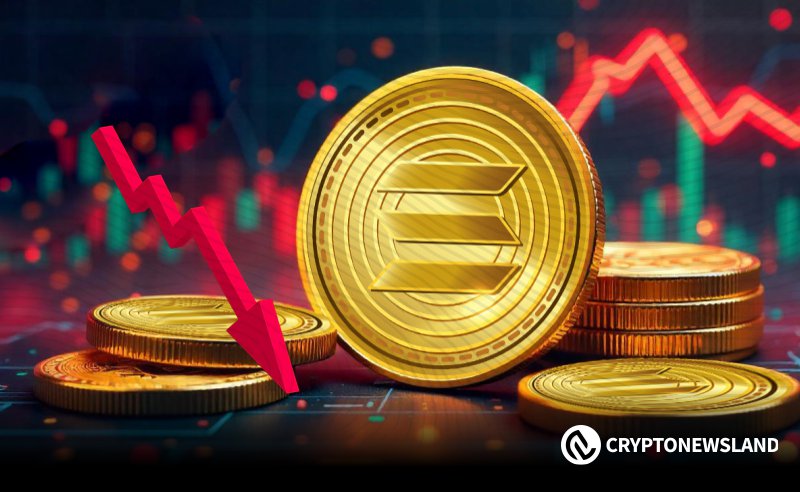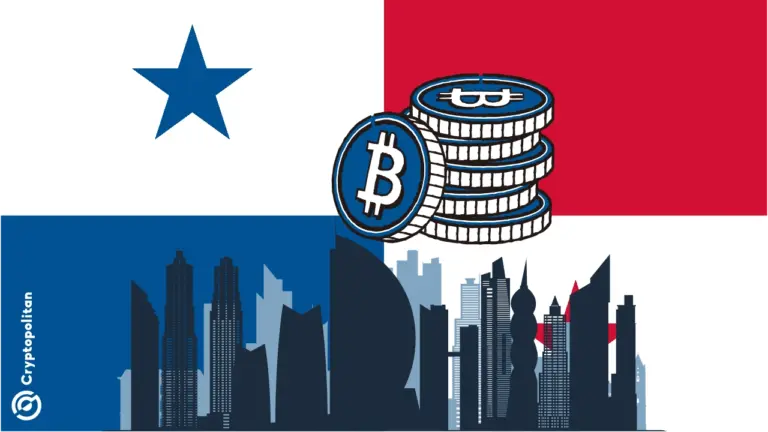How to swap tokens between Base and Solana: A step-by-step guide
Key takeaways
- Properly configuring MetaMask for Base and Phantom for Solana ensures seamless token transfers between the two networks.
- Crosschain bridges such as Wormhole, Allbridge and Rango allow secure token transfers between Base and Solana, considering factors such as fees and supported tokens.
- Having enough ETH for gas fees on Base and SOL for transaction fees on Solana is necessary before initiating transfers.
- Double-checking wallet addresses, reviewing transaction details and staying updated on bridge security helps avoid errors and protect your funds.
Like a causeway rising between two distant shores, Base-to-Solana token bridges have quickly emerged to meet modern interoperability needs.
By connecting these two chains, developers and users can tap into the best of both worlds. For example, a developer building a decentralized finance (DeFi) lending platform on Base can benefit from Ethereum ’s security and rich decentralized application (DApp) ecosystem while simultaneously utilizing Solana ’s speed and low fees for high-frequency trading.
Whether you’re a developer integrating multiple blockchains into your project or a trader taking advantage of market conditions, understanding how to swap tokens between Base and Solana is essential.
This guide will walk you through the step-by-step process of swapping tokens between Solana and Base, giving you the tools to navigate these networks with ease.
Swapping tokens between Base and Solana — Preparation
Before swapping tokens between Base and Solana, you need the right setup. Let’s get your wallets ready and ensure you have the necessary tokens for smooth transactions.
Setting up wallets
Step 1: Install and configure MetaMask for Base
MetaMask is essential for accessing the full range of activities on the Base network. Without linking it to the Base mainnet, MetaMask would only function for Ethereum-based transactions, leaving you unable to access Base-specific functionalities.
Start by downloading the MetaMask extension or app from the official site. Once installed, open it, create a new wallet, or import an existing one.
Next, add the Base network to MetaMask:
Open MetaMask and go to “Settings,” click “Networks,” and click “Add Network.”
Use these details for Base:
- Network Name: Base Mainnet
- RPC URL: https://mainnet.base.org
- Chain ID: 8453
- Symbol: ETH
- Block Explorer URL: https://basescan.org
Save the configuration, and your MetaMask wallet is ready for Base transactions.
Step 2: Install and configure Phantom wallet for Solana
Phantom is your go-to wallet for Solana. Download the Phantom extension or app from phantom.app and set up a new wallet or restore one using a seed phrase .
Phantom is already configured for Solana, so there’s no additional setup — just save your wallet credentials securely.
Getting ETH and SOL for transaction fees
Step 1: Get ETH to pay Base’s network fees
To execute transactions on Base, you’ll need Ether ( ETH ) for gas fees . If you don’t already have ETH on Base:
- Transfer ETH from another wallet or exchange.
- Use a bridging service like Base Bridge to transfer ETH from Ethereum to Base.Ensure you leave some ETH in your wallet for transaction costs.
Step 2: Get SOL for Solana fees
On the Solana network, transactions require SOL for fees. You can purchase SOL from major exchanges like Binance or Coinbase and send it to your Phantom wallet. Double-check the wallet address before transferring to avoid errors.
Choosing a crosschain bridge
To swap tokens between Base and Solana, you’ll need a crosschain bridge. These platforms allow you to transfer tokens securely from one blockchain to another. Here are some of the top options for Base and Solana transfers:
Examples of crosschain bridges
- Wormhole Portal Bridge: Wormhole is one of the well-known crosschain bridges. It supports transfers between a wide range of blockchains, including Base and Solana. This article uses this bridge as an example in this article.
- Allbridge: Allbridge is another bridge that facilitates transfers between multiple blockchains, including Solana and Base. It’s known for its simplicity and ease of use and is a solid option if you want to swap tokens across several networks at once.
- Rango Exchange: Rango isn’t a single bridge but an aggregator of multiple bridges. It finds the best routes across different platforms, offering a seamless experience for token swaps. It connects Solana and Base along with many other blockchains, optimizing your transaction for the best rates and lowest fees.
Did you know? The Ronin Bridge hack, one of the most significant in DeFi history, saw attackers steal over $600 million worth of cryptocurrency from the Ronin Network, exploiting vulnerabilities in its validator set.
Factors to consider
When choosing the right bridge for swapping tokens between Base and Solana, it’s important to keep a few key factors in mind:
- Security features and audits: Security should always be your top priority. Make sure the bridge you choose has undergone thorough security audits to minimize risks. For instance, in 2022, Wormhole Portal was exploited, with 120,000 ETH ($325 million) stolen, marking the fourth-largest crypto theft ever. The attacker minted Wrapped Ether (wETH) on Solana, transferring 93,750 ETH to Ethereum.
- Supported tokens and networks: Not all bridges support every token. Check if the tokens you want to transfer are supported by the bridge. Wormhole and Allbridge support a wide range of tokens, but Rango aggregates from multiple platforms, giving you access to more options for token swaps.
- Transaction fees and transfer times: Fees can vary depending on the bridge and the networks involved. Some bridges offer lower fees but might take longer to complete the transfer, while others might be faster but come with higher costs. Be sure to compare transaction fees and estimated transfer times before committing to a bridge, especially for larger transactions.
Did you know? Base was created by Coinbase in July 2023 as a layer-2 blockchain built on Ethereum. Its primary goal was to provide a more scalable, cost-effective environment for decentralized applications (DApps) while leveraging Ethereum’s security.
Step-by-step guide to swapping tokens from Base to Solana
Swapping tokens from Base to Solana is a straightforward process, but it requires careful attention to each step. Here’s how to do it:
1. Connecting wallets to the bridge
- Access the chosen bridge platform.
- First, head over to the bridge platform you’ve selected. For example, if you’re using Wormhole or Allbridge, visit their websites. Each platform has a user-friendly interface that makes it easy to initiate a token transfer.
- Connect your MetaMask (Base) and Phantom (Solana) wallets.
- Open both wallets and connect them to the bridge interface by clicking the “Connect Wallet” button on the bridge platform. The platform will prompt you to approve the connection with both wallets.
2. Initiating the transfer
- Select the token and amount to transfer from Base.
- Once your wallets are connected, choose the token you wish to transfer from Base. You’ll likely see a drop-down list of supported tokens. Select the token and enter the amount you want to send to Solana.
- Specify Solana as the destination network.
- Select Solana as the destination network for your transfer. This will ensure that your tokens are routed correctly.
- Review transaction details, including fees. Before confirming the transaction, carefully review the following details, such as the token, the amount you’re transferring, the destination network (Solana), the estimated transaction fees (check for gas fees on Base and any additional costs on the bridge platform) and any estimated time for completion.
3. Confirm and authorize the transaction
If everything looks good, confirm the transaction. Your wallet will prompt you to approve the transfer, and you’ll need to authorize it. Pay attention to the gas fee details and ensure you have enough ETH in your MetaMask wallet to cover the fee.
4. Completing the swap
- Monitor the transfer process via the bridge interface.
- Once you’ve authorized the transaction, the bridge platform will begin processing it. Depending on the bridge you’re using, you might see a progress bar or status updates. Some platforms provide real-time information, such as transaction confirmations or estimates on completion time.
- Once completed, verify the receipt of tokens in the Phantom wallet.
- Once the transfer is complete, check your Phantom wallet for the tokens. Refresh your wallet if necessary. Your tokens should appear in the wallet under the selected token. If you don’t see them, check the transaction history on the bridge platform to confirm the transfer was successful.
Swapping tokens from Solana to Base
If you want to reverse the process and swap tokens from Solana back to Base, follow these steps:
1. Reversing the process
- Connect your Phantom wallet to the bridge platform.
- Just like before, open your Phantom wallet and connect it to the bridge platform.
- Select the token and amount to transfer from Solana.
- Choose the token you want to transfer from Solana and enter the amount. Make sure you select the correct token from your Phantom wallet.
- Specify “Base” as the destination network. The bridge platform will automatically route your tokens to Base.
2. Review and confirm transaction details
Double-check the following before you finalize the transaction:
- The token and amount being transferred
- The correct destination network (Base)
- Gas fees and any additional costs associated with the transfer
- Estimated transfer time.
Once you’re sure everything is in order, click “Confirm” and authorize the transaction in Phantom.
3. Authorize the transaction and monitor its progress
Approve the transaction in your Phantom wallet. After authorization, the platform will process the transfer, and you’ll see updates on the transaction’s status.
4. Verify the receipt of tokens in the MetaMask wallet
After the transfer is complete, open your MetaMask wallet, which is connected to the Base network. The tokens should appear in your wallet under the selected token. If they don’t show up immediately, try refreshing the wallet or checking the transaction details on the bridge platform to ensure the swap was successful.
Alternative methods to swap tokens between Base and Solana
If you prefer not to use a crosschain bridge for transferring tokens between Base and Solana, another viable option is to use a centralized exchange (CEX). While this method may not be as seamless as using a bridge, it’s often a good alternative for users looking for a more familiar platform with additional features such as trading pairs, liquidity and advanced tools.
1. Transfer tokens from Base to a CEX — e.g., Binance
Start by transferring your tokens from the Base network to a centralized exchange that supports both Base and Solana assets. Exchanges like Binance often allow deposits from Base and withdrawals to Solana-compatible tokens.
Open your exchange account and find the deposit option for your token — e.g., USD Coin ( USDC ), ETH, etc. — on Base.
Send the tokens from your MetaMask wallet (Base network) to the CEX deposit address. Wait for the tokens to be credited to your exchange account.
2. Trade for Solana-compatible tokens
Once the tokens are deposited into your exchange account, you can trade them for Solana-compatible assets — e.g., SOL, Tether’s USDt ( USDT ) on Solana or any other token supported by Solana. Use the exchange’s trading interface to perform the swap.
3. Withdraw tokens to the Solana network
After completing the trade, you can withdraw your Solana-compatible tokens to your Phantom wallet on the Solana network. Choose the withdrawal option on your CEX, specify the token — e.g., SOL — and enter your Solana wallet address from Phantom. Make sure the network is set to Solana to avoid any issues.
Considerations
While using a CEX might seem easier, there are a few factors to keep in mind:
- KYC requirements and potential withdrawal fees: Many centralized exchanges require you to complete Know Your Customer (KYC) verification before making deposits or withdrawals. This can be a hassle if you’re looking for a quick transaction. Additionally, exchanges often charge withdrawal fees, especially for smaller amounts or network congestion, so be sure to check their fee structure before proceeding.
- Longer processing times compared to direct bridges: Transfers through a CEX usually take longer than using a direct bridge. While direct bridges typically offer faster transaction speeds, exchanges require you to deposit, trade and then withdraw, which can add extra time to the process. If you’re in a hurry, using a bridge might be the faster option.
Tips and best practices for swapping tokens
When swapping tokens between Base and Solana, it’s crucial to follow best practices to ensure a smooth and secure transaction. Here are some tips to help you navigate the process:
- Ensure sufficient native tokens for gas fees on both networks: Each blockchain requires native tokens to pay for gas fees. For Base, you’ll need ETH to cover transaction costs, while for Solana, SOL is required. Before initiating any transfer, make sure you have enough ETH in your MetaMask wallet (Base) and enough SOL in your Phantom wallet (Solana) to cover transaction fees. Gas fees can fluctuate depending on network congestion, so it’s a good idea to leave a little extra buffer to avoid transaction failures.
- Double-check wallet addresses to prevent loss of funds: Mistyped wallet addresses are a common cause of lost funds in crypto transactions. Always double-check that the wallet addresses for both your MetaMask (Base) and Phantom (Solana) wallets are correct before initiating any transfer. Copy-paste the addresses directly from your wallets to avoid errors. Double-check the network as well (Base vs. Solana) to ensure you’re using the correct addresses and networks for the transfer.
- Be aware of network congestion and its impact on transfer times: Both Base and Solana can experience periods of congestion, especially during high-traffic times. Network congestion can affect transaction speeds and fees. Keep an eye on network status: Some platforms or block explorers show real-time congestion updates. If you notice that the network is congested, you might want to wait a little before making the transfer or be prepared for higher fees and slower processing times. For example, Solana is generally faster than Ethereum-based networks, but congestion can still occur when the network is under heavy load.
- Stay informed about the latest updates and security practices for the chosen bridge platforms: Bridges are evolving platforms, and staying informed about any updates, security patches or potential vulnerabilities is crucial to ensuring a safe and efficient transfer.
- Follow official channels: Keep track of the latest news and announcements from the bridge platform you’re using. This might include updates on security, supported tokens or network changes.
- Check for audits and security updates: Make sure the bridge platform you use has been audited and follows strong security practices. Regular audits and updates help protect your funds and reduce the risk of exploits.
Did you know? Crosschain bridges are particularly vulnerable to hacks due to their complex nature, often acting as high-value targets for attackers. However, bridge developers are adapting by implementing enhanced security protocols, such as more robust smart contract audits, real-time monitoring and decentralized validation systems, to better safeguard user assets and reduce vulnerabilities.
And that’s it! You’re now equipped to seamlessly swap tokens between Base and Solana, unlocking the full potential of crosschain interoperability.
Disclaimer: The content of this article solely reflects the author's opinion and does not represent the platform in any capacity. This article is not intended to serve as a reference for making investment decisions.
You may also like
Bitcoin Sets Higher Lows—Can Bulls Target $88K Resistance?

Solana Faces 50% Drop Risk as $125–$137 Range Holds the Key Amid Market Volatility

Panama City Council makes history as the first government institution accepting crypto payments
Share link:In this post: Panama City council voted in favor of becoming the first public institution of government to accept payments in cryptocurrencies. Citizens will now be able to pay taxes, fees, tickets and permits entirely in crypto starting with BTC, ETH, USDC, and USDT. The city partnered with a bank that will receive crypto payments and convert them on the spot to U.S. dollars, allowing for the free flow of crypto in the entire economy.

EnclaveX launch brings fully encrypted, cross-chain futures trading to retail investors
